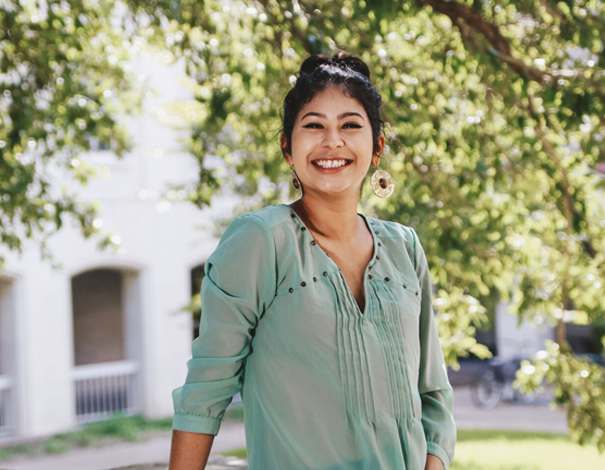Briana, transplant recipient
There are many side effects of a blood or marrow transplant (BMT) that can impact your body image. These include hair loss, skin and muscle changes, and weight gain or loss. Some side effects, such as fatigue (feeling tired), aren’t visible, but can still affect your body image.
What is body image?
Your body image is how you see your body and how you feel about it. After transplant some people may see the changes in their body and feel embarrassed or self-conscious. Others may see the strength it took to get through treatment and feel proud of their body.
Worrying about body image can happen because of the changes to your body which can remind you of the disease and treatment.
Watch for signs of body image concerns
If you don’t feel good about your body after transplant, you’re not alone. You may have body image concerns if you:
- Are very unhappy with your physical appearance
- Feel worried about physical changes in your body
- Avoid social situations due to your appearance
- Are stressed about or avoid romantic relationships due to changes in your body
If you or your loved one has any of these signs, help is available and there are ways to cope.
Talk about your body image with a trusted person
While it may not seem easy to bring up with your health care team, talking about your body image is important.
“A discussion with your doctor, a close friend or loved one can help,” says D. Kathryn Tierney, PhD, RN, Clinical Assistant Professor from Stanford Health Care. So it’s important to tell them about any body image concerns you have. Don’t wait for them to ask. Say something like, “I know you’re focused on my physical health, but I’m really concerned about my appearance and how it’s changed since transplant. Can we talk about that?”
Many transplant centers have support groups that can help you cope with body image changes. Your social worker or nurse coordinator can help you find resources near you.
Dr. Tierney also recommends a program through the American Cancer Society called “Look Good Feel Better”. This free program offers resources for men, women and teens to help cope with appearance-related side effects of chemotherapy and radiation.
In the future, Dr. Tierney says researchers may “compare talk therapy to support groups or other approaches to help people regain a healthy body image.” But in the meantime, her advice is to simply talk. She says, “A discussion with your doctor, a close friend or loved one can help.” Find a trusted person and tell them how you’re feeling.
Free support is available
The Be The Match Patient Support Center can help you cope with body image changes after BMT. We offer:
- One-on-one support from a social worker. Learn more at: BeTheMatch.org/PACES
- Connections with another transplant recipient or caregiver volunteer. Our trained volunteers can listen and share personal experience by phone or email. Request a connection at: BeTheMatch.org/PeerConnect

